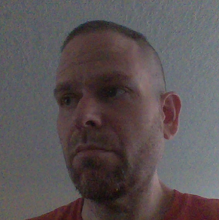Friday, December 19, 2014
The Incident on King Street
In the Eighteenth Century there were no modern police forces. In the American Colonies, protection of Crown corporate property was provided by uniformed regulars ("Redcoats") armed with common military weapons of the day. Though it need hardly be said that they possessed no such firepower as modern police forces have in any sizable American city today. Nonetheless, a historical comparison can be enlightening...
On evening of March 5, 1770, a wig-maker's apprentice approached the Boston Custom House in order to collect a debt from an officer stationed within. The British regular guarding the Custom House turned the apprentice away, telling him to show more respect to the officer. An argument ensued and the regular struck the apprentice with in the head with his musket.
A crowd gathered around the writhing apprentice. Eventually, the crowd swelled to over 50 people. Led by an club-wielding former slave named Crispus Attucks, they began taunting the soldier and challenged him to fire his weapon. Church bells were rung, which brought more people to the street. A nearby barracks had been alerted to the commotion, and British Captain, Thomas Preston, led 7 soldiers wielding muskets with fixed bayonets to retrieve their comrade. Preston's troops pushed their way through the crowd to the steps of the custom house, where they assumed a semi-circular formation, and Preston ordered the assembled masses to disperse.
Facing the line of muskets, The crowd responded by spitting, throwing snowballs and other projectiles, and yelling "Fire!" When a projectile knocked one soldier down, he discharged his weapon. A protester named Richard Palmes struck him with a club, and then clubbed Captain Preston as well. Moments later, other soldiers fired shots. Crispus Attucks, Samuel Gray and James Caldwell died instantly. Samuel Maverick and Patrick Carr later died of wounds received there.
THE NEXT DAY, the soldiers were arrested. At trial, the defense characterized the protest as "a motley rabble of saucy boys, negroes, and molattoes, Irish teagues and outlandish jack tarrs." The jury found two of the soldiers guilty of manslaughter. The incident would become known as The Boston Massacre, and became a rallying call for American independence.
Subscribe to:
Post Comments (Atom)
BlogCatalog
BlogCatalog
Followers
Blog Archive
About Me

- J. Dominic Fisher
- "Government is instituted for the common good; for the protection, safety, prosperity, and happiness of the people; and not for the profit, honor, or private interest of any one man, family, or class of men: Therefore the people alone have an incontestible unalienable, and indefeasible right to institute government; and to reform, alter, or totally change the same, when their protection, safety, prosperity, and happiness require it." -- Constitution of Massachusettes (1780)




Things haven't changed much, have they? Accept perhaps for the fact that they actually found two of the soldiers guilty. That'd be a novelty these days.
ReplyDeleteYes, that last part has changed
Delete